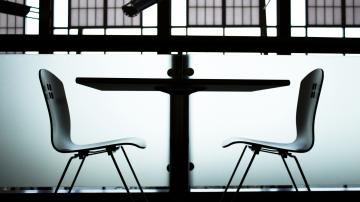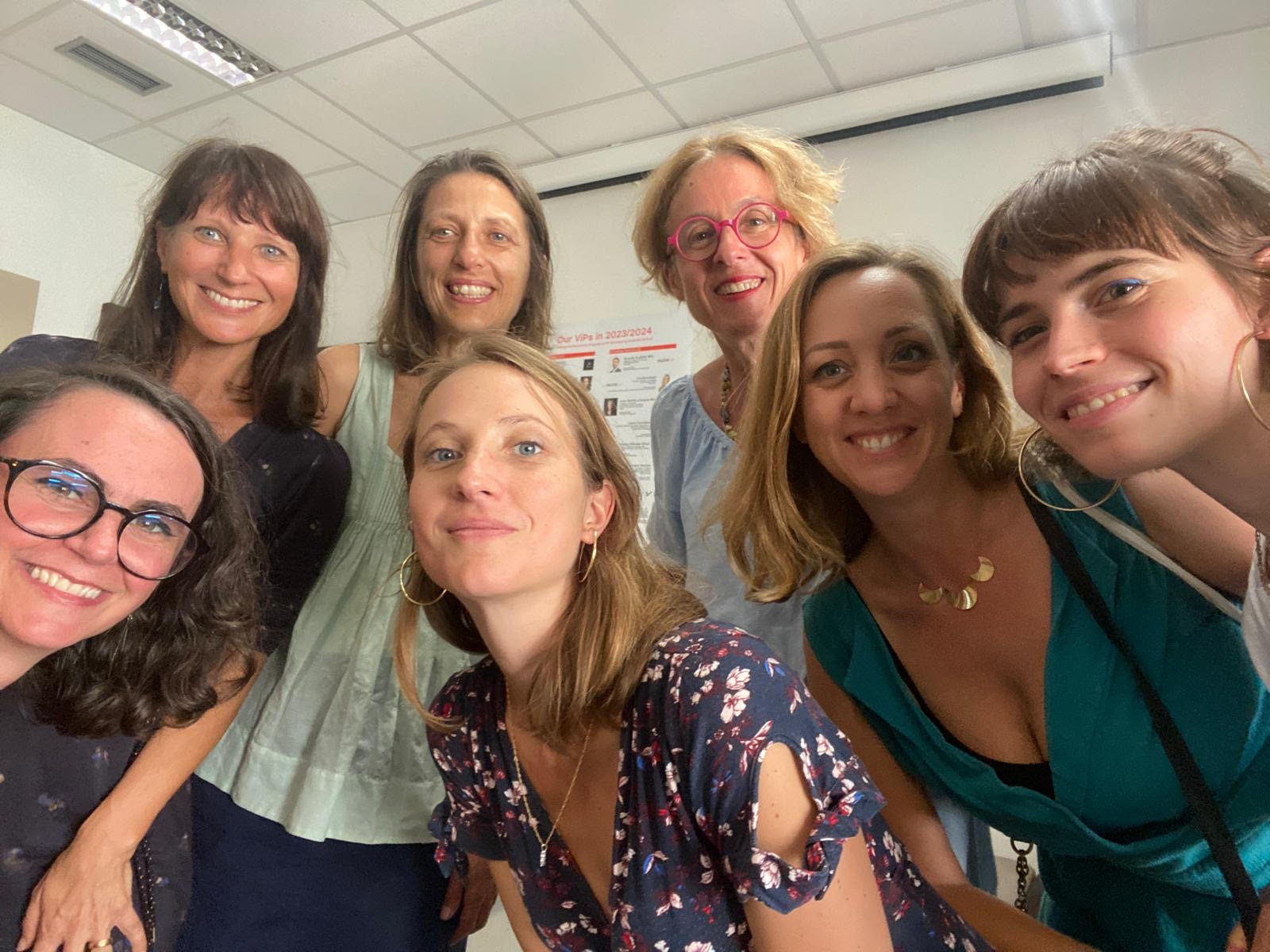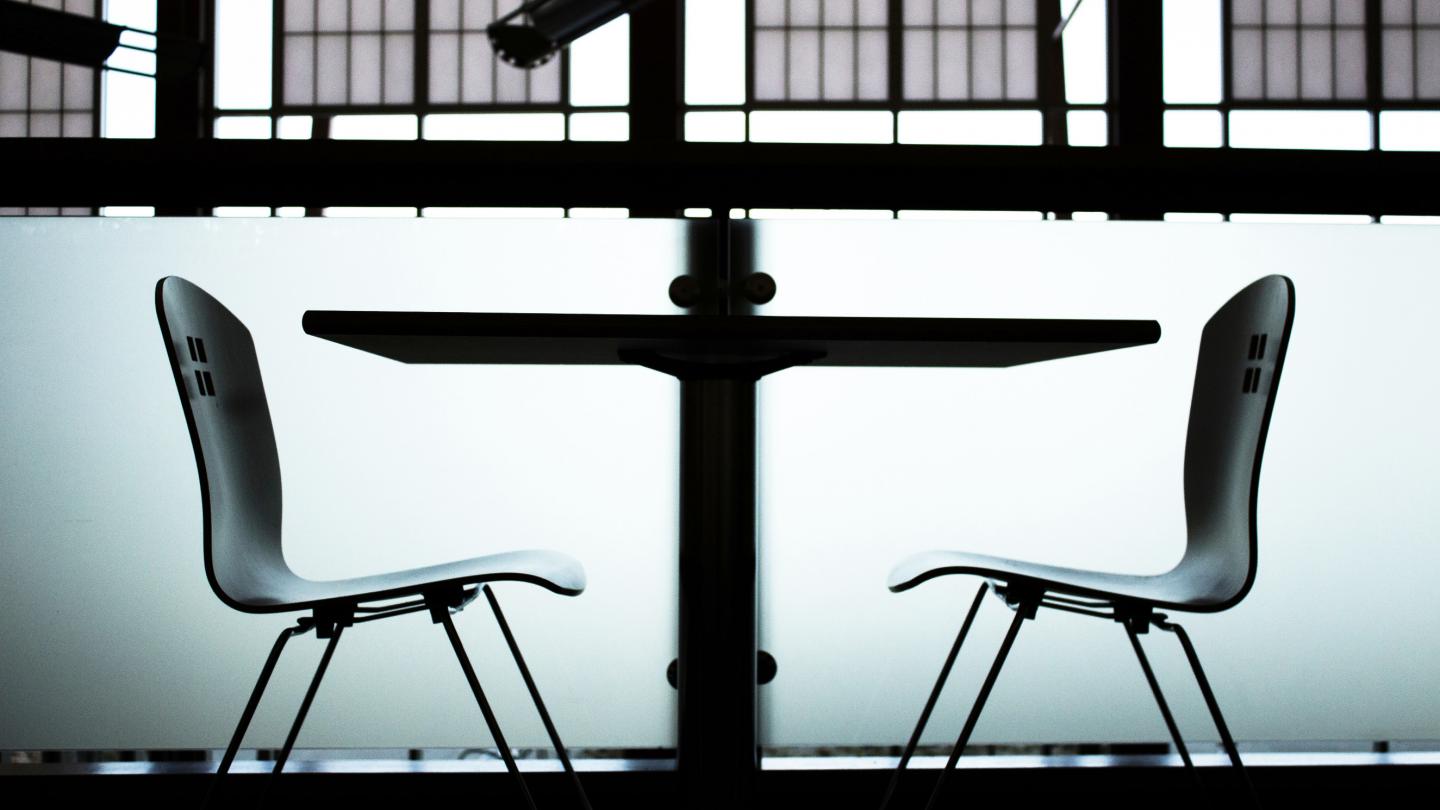
As part of the Visiting Professorship Research Program, Nada Endrissat, professor at the Bern Business School, spent two weeks at EM Strasbourg to work with the MAESTRO research cluster and share her research expertise linked to creative industries. We had the opportunity to ask her a few questions about her research field and her most recent achievements.
Hello Nada, thank you for giving us this interview. To get to know you a bit better, could you start by telling us about your academic background?
I studied psychology in Germany at the Freie Universität Berlin, where I majored in organizational psychology and minored in business administration. Then, I completed a PhD in leadership in Swiss hospitals. I spent six months at HEC Montréal working with Prof. Ann Langley who was a leading scholar in the area of leadership in complex public organizations.
My teaching covers both transformation of work, new work, the human factors in the digital transformation, and research methods. Besides teaching, I direct the Master of Science in Business Administration. My position also includes conducting research in the area of work, including creative work, craftwork, and the meaningfulness of work.
Could you tell us about your current research field?
Right now, I'm collaborating on a social entrepreneurship project with two colleagues. Our goal is to explore how museums can transform themselves to foster inclusivity and challenge elitism and colonialism through a bottom-up, entrepreneurial approach.
What motivated you to come to Strasbourg as part of the MAESTRO cluster?
The research of the MAESTRO team focuses on creative industries and the questions of sustainability, ethics, and value creation. This is super relevant to me, and I have been following the work of colleagues like Prof. Amélie Boutinot and Assoc. Prof. Sophie Michel for some time. It is a great pleasure to be here and to learn and develop further ideas around creative industries and sustainability. I hope that this research stay will allow us to establish a solid ground that will carry us into the future and provide exciting research opportunities that we can explore together.
Can you provide an example of successful collaboration between your research and the creative industry? How did this collaboration benefit both parties?
When I arrived in Bern, I launched a project in collaboration with the Bern Academy of the Arts (HKB), looking at the careers of professionals holding a master’s from fine arts programs. Our attention was brought to a North American organic supermarket chain that had a position for store artists. It raised questions about how business and art can intersect. This led me to investigate why people would choose to work as store artists and how businesses benefit from hiring artists for branding purposes, like being recognized as an organization with progressive values. This chain, which valued authenticity and alternative aesthetics, appealed to artists with an MFA degree.
Another project with the art school involved perfume making, which examined the collaboration between different professionals, such as designers and perfumers, and how materiality plays a key role in creative industries by using moodboards to ensure effective visual coordination.
According to you, what are the main challenges faced by creative industries today?
On the one hand, the main challenges for companies such as those in fashion and architecture are achieving sustainability and becoming role models. On the other hand, the main challenges for companies such as museums and theaters are becoming accessible and inclusive.
How do you perceive the future evolution of creative industries?
Many companies in the creative industries decide to stay small and develop differently while respecting the question of sustainability. These interesting models show that it is possible to survive without constant growth. Creative entrepreneurs are unique!
Creative industries are a good model for this because they show us how we can survive without making huge profits. They demonstrate different ways of thinking about growth; it’s not necessarily about making more profit but developing different fields, new ideas and being a role model. They introduce the notion of sustainability naturally. Their practices are slower but may be more intriguing in the long run. They don’t have solutions for everything, but they are very interesting for generating new ideas and extending the debate.
Fashion is one of the creative industries with the worst footprint. I hope the fashion industry will reinvent itself and find ways to provide a model for doing things differently. I believe that creative industries are becoming more and more local, which is really fascinating for sourcing local ideas and heritage development.
What impact does AI have on creative industries that focus on preserving the human aspect while exploring the integration of social media into artists’ professional identities?
As a researcher, I'm exploring how AI impacts creative industries and artists' perceptions in relation to these changes. My focus is on maintaining the human element in art and creativity amidst technological advancements. I'm also investigating how digital skills and social media presence have become integral to artists' professional identities.
How can we maintain authenticity and critical thinking in creative work with the rise of AI?
In my teaching, I encourage my students to consider how new technologies affect them personally and ethically. While AI and automation offer opportunities that make work easier, there is also the challenge of deskilling. If we rely on tools like Chat GPT to do tasks for us, we must preserve our ability to think critically.
In my research, I practice this critical thinking. For example, while arts can improve organizational practices, like initiating change, I am also aware that art can be used for business gains and manipulation, as seen in research on musical interventions for team spirit, which can be exploitative.
I think it is important to find a balance between business demands and human needs, advocating for environments where both can thrive without burnout. Automation poses challenges to human needs because it prioritizes efficiency. Although Allen Morgenstern's motto "work smarter, not harder" is ideal, pressure to be more productive often pushes us to work longer hours. So I think it is critical not to lose track of the human elements in work amidst increasing automation and technology, in the creative industries and beyond.

Thank you, Prof. Endrissat, for taking the time to answer our questions!
